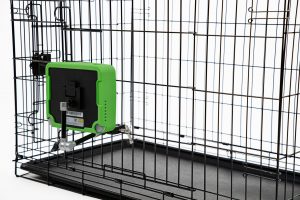Exploring the Role of AI in Revolutionizing Animal Health and Disease Prediction
Artificial intelligence (AI) has been making waves in various industries, from healthcare to finance, and now it is poised to revolutionize the field of animal health and disease prediction. As the world’s population continues to grow, the demand for food, particularly animal protein, is expected to rise significantly. This increased demand for food production puts immense pressure on the livestock industry to ensure the health and well-being of animals. The use of AI in monitoring and predicting animal health is not only a promising solution to meet this demand but also has the potential to transform the way we approach animal health management.
One of the key challenges in maintaining animal health is the early detection and prevention of diseases. Traditional methods of disease detection, such as visual inspection and manual data collection, are time-consuming and often inaccurate. AI-powered technologies, on the other hand, can process vast amounts of data in real-time, allowing for faster and more accurate detection of diseases. This is particularly crucial in the case of highly contagious diseases, where early detection can prevent the spread of the disease and save the lives of numerous animals.
AI can also help in predicting the onset of diseases by analyzing patterns and trends in the data collected. Machine learning algorithms can be trained to recognize patterns that may indicate the presence of a disease or an increased risk of infection. For instance, AI can analyze data from wearable devices that monitor an animal’s vital signs, such as heart rate, body temperature, and activity levels. By identifying any deviations from the norm, AI can alert farmers and veterinarians to potential health issues before they become critical.
In addition to early detection and prediction, AI can also play a crucial role in the development of new vaccines and treatments for animal diseases. By analyzing large datasets of genetic information, AI can help researchers identify potential targets for new drugs and vaccines. This can significantly speed up the process of drug discovery and development, ultimately leading to more effective treatments for various animal diseases.
Another area where AI can make a significant impact is in the field of precision livestock farming. This approach involves the use of advanced technologies to monitor and manage individual animals, allowing for more targeted and efficient use of resources. AI can help in this regard by analyzing data from various sources, such as sensors, cameras, and wearable devices, to provide insights into an animal’s health, behavior, and productivity. This information can then be used to make informed decisions about feeding, breeding, and medical interventions, ultimately leading to improved animal welfare and increased productivity.
The integration of AI in animal health management also has the potential to benefit the environment. By enabling more efficient use of resources and reducing the need for harmful chemicals and antibiotics, AI can contribute to more sustainable and eco-friendly farming practices. Furthermore, the early detection and prevention of diseases can help reduce the overall environmental impact of livestock farming, as healthy animals require fewer resources and produce less waste.
In conclusion, the application of AI in the field of animal health and disease prediction holds immense potential for revolutionizing the way we approach livestock management. By enabling early detection and prevention of diseases, as well as more efficient use of resources, AI can help meet the growing demand for food production while ensuring the health and well-being of animals. As the technology continues to advance, it is crucial for researchers, farmers, and policymakers to work together to harness the power of AI and create a more sustainable and productive future for the livestock industry.
Source : https://dtgreviews.com/uncategorised/how-ai-is-transforming-the-future-of-animal-health-and-disease-prediction/50339/






